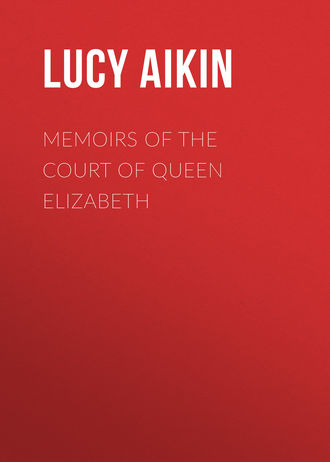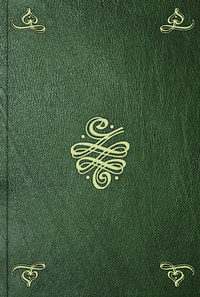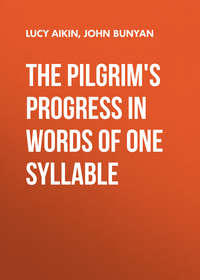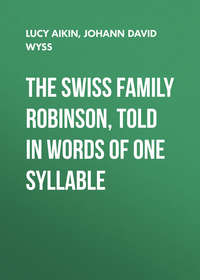 полная версия
полная версияMemoirs of the Court of Queen Elizabeth
Meantime the ill-fated deputy, conscious of his own fidelity and essential loyalty, and unsuspicious of the snares spread around him, was often unguarded enough to give vent in gross and furious invective against the person of majesty itself, to the profound vexation which he, in common with all preceding and following governors of Ireland under Elizabeth, was destined to endure from the penury of her supplies and the magnitude of her requisitions. His words were all carried to the queen, mingled with such artful insinuations as served to impart to these unmeaning ebullitions of a hasty temper the air of deliberate contempt and meditated disloyalty towards his sovereign.
Just before the sailing of the armada, Perrot was recalled, partly indeed at his own request. A rigid or rather a malicious inquiry was then instituted into all the details of his actions, words and behaviour in Ireland, and he was committed to the friendly custody of lord Burleigh. Afterwards, the lords Hunsdon and Buckhurst, with two or three other councillors, were ordered to search and seize his papers in the house of the lord treasurer without the participation of this great minister, who was at once offended and alarmed at the step. Perrot was carried to the Tower, and at length, in April 1592, put upon his trial for high treason. The principal heads of accusation were;—his contemptuous words of the queen;—his secret encouragement of O'Rourk's rebellion and the Spanish invasion, and his favoring of traitors. Of all these charges except the first he seems to have proved his innocence, and on this he excused himself by the heat of his temper and the absence of all ill intention from his mind. He was however found guilty by a jury much more studious of the reputation of loyalty than careful of the rights of Englishmen.
On leaving the bar, he is reported to have exclaimed, "God's death! will the queen suffer her brother to be offered up as a sacrifice to the envy of my frisking adversaries!"
The queen felt the force of this appeal to the ties of blood. It was long before she could be brought to confirm his sentence, and she would never sign a warrant for its execution. Burleigh shed tears on hearing the verdict, saying with a sigh, that hatred was always the more inveterate the less it was deserved.
Elizabeth, when her first emotions of anger had passed away, was now frequently heard to praise that rescript of the emperor Theodosius in which it is thus written:—
"Should any one have spoken evil of the emperor, if through levity, it should be despised; if through insanity, pitied; if through malice, forgiven." She is likewise said, in language more familiar to her, to have sworn a great oath that they who accused Perrot were all knaves, and he an honest and faithful man. It was accordingly presumed that she entertained the design of extending to him the royal pardon; but her mercy, if such it merits to be called, was tardy; and in September 1592, six months after his condemnation, this victim of malice perished in the Tower, of disease, according to Camden; but, by other accounts, of a broken heart. In either case the story is an affecting one, and worthy to be had in lasting remembrance, as a striking and terrible example of the potency of court-intrigue, and the guilty subserviency of judicial tribunals under the jealous rule of the last of the Tudors.
English literature, under the auspices of Elizabeth and her learned court, had been advancing with a steady and rapid progress; and it may be interesting to contemplate the state of one of its fairest provinces as exhibited by the pen of an able critic, who in the year 1589 gave to the world an Art of English Poesy. This work, though addressed to the queen, was published with a dedication by the printer to lord Burleigh; for the author thought proper to remain concealed: on its first appearance its merit caused it to be ascribed to Spenser by some, and by others to Sidney; but it was traced at length to Puttenham, one of her majesty's gentleman-pensioners, the author of some adulatory poems addressed to her and called Partheniads, and of various other pieces now lost.
The subject is here methodically treated in three books; the first, "Of Poets and Poesy;" the second, "Of Proportion;" the third, "Of Ornament." After some remarks on the origin of the art and its earliest professors, and an account of the various kinds of poems known to the ancients,—in which there is an absence of pedantry, of quaintness, and of every species of puerility, very rare among the didactic writers of the age,—the critic proceeds to an enumeration of our principal vernacular poets, or "vulgar makers," as he is pleased to anglicize the words. Beginning with a just tribute to Chaucer, as the father of genuine English verse, he passes rapidly to the latter end of the reign of Henry VIII., when, as he observes, there "sprung up a new company of courtly makers, of whom sir Thomas Wyat the elder and Henry earl of Surry were the two chieftains; who having travelled into Italy, and there tasted the sweet and stately measures and style of the Italian poesy, as novices newly crept out of the schools of Dante, Arioste, and Petrarch, they greatly polished our rude and homely manner of vulgar poesy, from that it had been before, and for that cause may justly be said the first reformers of our English metre and style107."
After slight notice of the minor poets, who flourished under Edward VI. and Mary, he goes on to observe that "in her majesty's time that now is, are sprung up another crew of courtly makers, noblemen and gentlemen of her majesty's own servants, who have written excellently well, as it would appear if their doing could be found out and made public with the rest." And in a subsequent passage he thus awards to each of them his appropriate commendation. "Of the latter sort I think thus: That for tragedy the lord Buckhurst and master Edward Ferrys (Ferrers), for such doings as I have seen of theirs do deserve the highest price. The earl of Oxford and master Edwards of her majesty's chapel for comedy and interlude. For eglogue and pastoral poesy, sir Philip Sidney and master Chaloner, and that other gentleman who wrate the late 'Shepherd's Calendar'108. For dirty and amorous ode I find sir Walter Raleigh's vein most lofty, insolent and passionate. Master Edward Dyer for elegy, most sweet, solemn and of high conceit. Gascoigne for a good metre and for a plentiful vein. Phaer and Golding for a learned and well corrected verse, specially in translation clear and very faithfully answering their author's intent. Others have also written with much facility, but more commendably perchance if they had not written so much nor so popularly109." The passage concludes with a piece of flattery to her majesty in her poetical capacity, unworthy of transcription.
Under the head of "Poetical proportion" or metre, our author writes learnedly of the measures of the ancients, and on those employed by our native poets with singular taste and judgement, except that the artist-like pride in difficulty overcome has inspired him with an unwarrantable fondness for verses arranged in eggs, roundels, lozenges, triquets, and other ingenious figures, of which he has given diagrams further illustrated by finished specimens of his own construction.
Great efforts had been made about this period by a literary party, of which Stainhurst the translator of Virgil, Sidney and Gabriel Hervey were the leaders, to introduce the Greek and Roman measures into English verse, and Puttenham has judged it necessary to compose a chapter thus intituled: "How, if all manner of sudden innovations were not very scandalous, specially in the laws of any language or art, the use of Greek and Latin feet might be brought into our vulgar poesy, and with good grace enough." But it is evident on the whole, that he bore no good will to this pedantic novelty.
In treating of "Ornament," our author enumerates, explains and exemplifies all the rhetorical figures of the Greeks; adding, for the benefit of courtiers and ladies, to whom his work is principally addressed, translations of their names; several of which would require to be retranslated for the benefit of the modern reader, as for example the three following, all figures of derision:—"The fleering frump;"—"The broad flout;"—"The privy nip." At the present day, however, the work of Puttenham is most of all to be valued for the remarks on language and on manners, and the contemporary anecdotes with which it abounds, and of which some examples may be quoted. After observing that "as it hath been always reputed a great fault to use figurative speeches foolishly and indiscreetly, so it is esteemed no less an imperfection in man's utterance, to have none use of figure at all, specially in our writing and speeches public, making them but as our ordinary talk, than which nothing can be more unsavory and far from all civility:—'I remember,' says he, 'in the first year of queen Mary's reign a knight of Yorkshire was chosen speaker of the parliament, a good gentleman and wise, in the affairs of his shire, and not unlearned in the laws of the realm; but as well for lack of some of his teeth as for want of language, nothing well spoken, which at that time and business was most behoveful for him to have been: this man, after he had made his oration to the queen; which ye know is of course to be done at the first assembly of both houses; a bencher of the Temple, both well learned and very eloquent, returning from the parliament house asked another gentleman his friend how he liked Mr. Speaker's oration; 'Mary,' quoth the other, 'methinks I heard not a better alehouse tale told this seven years.'… And though grave and wise councillors in their consultations do not use much superfluous eloquence, and also in their judicial hearings do much mislike all scholastical rhetorics: yet in such a case… if the lord chancellor of England or archbishop of Canterbury himself were to speak, he ought to do it cunningly and eloquently, which cannot be without the use of figures: and nevertheless none impeachment or blemish to the gravity of the persons or of the cause: wherein I report me to them that knew sir Nicholas Bacon lord keeper of the great seal, or the now lord treasurer of England, and have been conversant with their speeches made in the Parliament house and Star-chamber. From whose lips I have seen to proceed more grave and natural eloquence, than from all the orators of Oxford or Cambridge; but all is as it is handled, and maketh no matter whether the same eloquence be natural to them or artificial (though I rather think natural); yet were they known to be learned and not unskilful of the art when they were younger men.... I have come to the lord keeper sir Nicholas Bacon, and found him sitting in his gallery alone with the works of Quintilian before him; indeed he was a most eloquent man, and of rare learning and wisdom as ever I knew England to breed; and one that joyed as much in learned men and men of good wits." He mentions being a by-stander when a doctor of civil law, "pleading in a litigious cause betwixt a man and his wife, before a great magistrate, who (as they can tell that knew him) was a man very well learned and grave, but somewhat sour and of no plausible utterance: the gentleman's chance was to say: 'My lord, the simple woman is not so much to blame as her leud abettors, who by violent persuasions have led her into this wilfulness.' Quoth the Judge; 'What need such eloquent terms in this place?' The gentleman replied, 'Doth your lordship mislike the term (violent)? and methinks I speak it to great purpose; for I am sure she would never have done it, but by force of persuasion.'" &c.
Pursuing the subject of language, which, he says, "in our maker or poet must be heedily looked unto that it be natural, pure, and the most usual of all his country," after some other rules or cautions he adds: "Our maker therefore at these days shall not follow Piers Plowman, nor Gower, nor Lydgate, nor yet Chaucer, for their language is now out of use with us: neither shall he take the terms of Northern men, such as they use in daily talk, whether they be noblemen or gentlemen or of their best clerks, all is a matter; nor in effect any speech used beyond the river of Trent, though no man can deny but that theirs is the purer English Saxon at this day, yet it is not so courtly nor so current as our Southern English is; no more is the far Western man's speech: ye shall therefore take the usual speech of the court, and that of London and the shires lying about London within sixty miles and not much above. I say not this but in every shire of England there be gentlemen and others that speak, but specially write, as good Southern as we of Middlesex or Surry do; but not the common people of every shire, to whom the gentlemen and also their learned clerks do for the most part condescend; but herein we are ruled by the English dictionaries and other books written by learned men, and therefore it needeth none other direction in that behalf. Albeit peradventure some small admonition be not impertinent, for we find in our English writers many words and speeches amendable, and ye shall see in some many inkhorn terms so ill affected brought in by men of learning, as preachers and schoolmasters; and many strange terms of other languages by secretaries and merchants and travellers, and many dark words and not usual nor well sounding, though they be daily spoken in court. Wherefore great heed must be taken by our maker in this point that his choice be good." He modestly expresses his apprehensions that in some of these respects he may himself be accounted a transgressor, and he subjoins a list of the new, foreign or unusual words employed by him in this tract, with his reasons for their adoption. Of this number are; scientific, conduict, "a French word, but well allowed of us, and long since usual; it sounds something more than this word (leading) for it is applied only to the leading of a captain, and not as a little boy should lead a blind man;" idiom, from the Greek; significative, "borrowed of the Latin and French, but to us brought in first by some noblemen's secretary, as I think, yet doth so well serve the turn as it could not now be spared; and many more like usurped Latin and French words; as, method, methodical, placation, function, assubtiling, refining, compendious, prolix, figurative, inveigle, a term borrowed of our common lawyers: impression, also a new term, but well expressing the matter, and more than our English word:" penetrate, penetrable, indignity in the sense of unworthiness, and a few more110. The whole enumeration is curious, and strikingly exhibits the state of language at this epoch, when the rapid advancement of letters and of all the arts of social life was creating a daily want of new terms, which writers in all classes and individuals in every walk of life regarded themselves as authorized to supply at their own discretion, in any manner and from any sources most accessible to them, whether pure or corrupt, ancient or modern. The pedants of the universities, and the travelled coxcombs of the court, had each a neological jargon of their own, unintelligible to each other and to the people at large; on the other hand, there were a few persons of grave professions and austere characters, who, like Cato the Censor during a similar period of accelerated progress in the Roman state, prided themselves on preserving in all its unsophisticated simplicity, or primitive rudeness, the tongue of their forefathers. The judicious Puttenham, uniting the accuracy of scholastic learning with the enlargement of mind acquired by long intercourse among foreign nations, and with the polish of a courtier, places himself between the contending parties, and with a manly disdain of every species of affectation, but especially that of rusticity and barbarism, avails himself, without scruple as without excess, of the copiousness of other languages to supply the remaining deficiencies of his own.
Several chapters of the book "of Ornament" are devoted to the discussion of the decent, or seemly, in words and actions, and prove the author to have been a nice observer of manners as well as a refined critic of style. He severely censures a certain translator of Virgil, who said "that Æneas was fain to trudge out of Troy; which term better became to be spoken of a beggar, or of a rogue, or of a lackey:" and another who called the same hero "by fate a fugitive;" and who inquires "What moved Juno to tug so great a captain;" a word "the most indecent in this case that could have been devised, since it is derived from the cart, and signifies the draught or pull of the horses." The phrase "a prince's pelf" is reprobated, because pelf means properly "the scraps or shreds of taylors and of skinners." He gives strict rules for the decorous behaviour of ambassadors and all who address themselves to princes, being himself a courtier, and having probably exercised some diplomatic function. "I have seen," says he, "foreign ambassadors in the queen's presence laugh so dissolutely at some rare pastime or sport that hath been made there, that nothing in the world could have worse becomen them." With respect to men in other stations of life he is pleased to say, it is decent for a priest "to be sober and sad;" "a judge to be incorrupted, solitary, and unacquainted with courtiers or courtly entertainments… without plait or wrinkle, sour in look and churlish in speech; contrariwise a courtly gentleman to be lofty and curious in countenance, yet sometimes a creeper and a curry favell with his superiors." "And in a prince it is decent to go slowly and to march with leisure, and with a certain grandity rather than gravity; as our sovereign lady and mistress, the very image of majesty and magnificence, is accustomed to do generally, unless it be when she walketh apace for her pleasure, or to catch her a heat in the cold mornings. Nevertheless it is not so decent in a meaner person, as I have discerned in some counterfeit ladies of the country, which use it much to their own derision. This comeliness was wanting in queen Mary, otherwise a very good and honorable princess. And was some blemish to the emperor Ferdinando, a most noble-minded man, yet so careless and forgetful of himself in that behalf, as I have seen him run up a pair of stairs so swift and nimble a pace, as almost had not become a very mean man, who had not gone in some hasty business."
Respecting the poets mentioned by Puttenham whose names have not already occurred in the present work, it may be observed, that excepting a few lines quoted by this critic, there is nothing remaining of sir Edward Dyer's, except, which is highly probable, he is to be reckoned among the anonymous contributors to the popular collections of that day. Of Gascoigne, on the contrary, enough is left to exhaust the patience of any modern reader. In his youth, neglecting the study of the law for poetry and pleasure, he poured forth an abundance of amatory pieces; some of them sonnets closely imitating the Italian ones in style as well as structure. Afterwards, during a five-years service in the war of Flanders, he found leisure for much serious thought; and discarding the levities of his early years, he composed by way of expiation a moral satire in blank verse called the Steel Glass, and several religious pieces. Notwithstanding however this newly assumed seriousness, he attended her majesty in her progress in the summer of 1575, and composed a large number of courtly verses as a contribution to "the princely pleasures of Kennelworth." Gascoigne died in October 1577. Of his minor poems the following may be cited as a pleasing specimen.
THE LULLABY OF A LOVERSing lullaby as women do,Wherewith they bring their babes to rest,And lullaby can I sing tooAs womanly as can the best.With lullaby they still the child;And if I be not much beguil'd,Full many wanton babes have I,Which must be still'd with lullaby.First lullaby my youthful years.It is now time to go to bed,For crooked age and hoary yearsHave won the haven within my head:With lullaby then youth be still,With lullaby content thy will,Since courage quails and comes behind,Go sleep and so beguile thy mind.Next lullaby my gazing eyes,Which wonted were to glaunce apace;For every glass may now sufficeTo shew the furrows in my face.With lullaby then wink awhile,With lullaby your looks beguile:Let no fair face or beauty brightEntice you eft with vain delight.And lullaby my wanton will,Let reason's rule now reign thy thought,Since all too late I find by skill,How dear I have thy fancies bought:With lullaby now take thine ease,With lullaby thy doubts appease;For trust to this, if thou be still,My body shall obey thy will.Thus lullaby my youth, mine eyes,My will, my ware, and all that was,I can no mo delays devise,But welcome pain, let pleasure pass:With lullaby now take your leave,With lullaby your dreams deceive,And when you rise with waking eye,Remember then this lullaby.Respecting another poet of greater popularity than Gascoigne, and of a more original turn of genius, Warner, the author of Albion's England, Puttenham has preserved a discreet silence; for his great work had been prohibited by the capricious tyranny, or rigid decorum, of archbishop Whitgift, and seizure made in 1586 of the copies surreptitiously printed. This long and singular poem is a kind of metrical chronicle, containing the remarkable events of English history from the flood,—the starting point of all chroniclers,—to the reign of queen Elizabeth. It is written in the common ballad measure, and in a style often creeping and prosaic, sometimes quaint and affected; but passages of beautiful simplicity and strokes of genuine pathos frequently occur to redeem its faults, and the tediousness of the historical narration is relieved by a large intermixture of interesting and entertaining episodes. The ballads of Queen Eleanor and fair Rosamond, Argentile and Curan, and the Patient Countess, selected by Dr. Percy in his Relics of Ancient Poetry, may be regarded by the poetical student of the present day as a sufficient specimen of the talents of Warner: but in his own time he was complimented as the Homer or Virgil of the age; the persevering reader travelled, not only with patience but delight, through his seventy-seven long chapters; and it is said that the work became popular enough, notwithstanding its prohibition by authority, to supersede in some degree its celebrated predecessor the Mirror for Magistrates.
CHAPTER XXIII
FROM 1591 TO 1593Naval war against Spain.—Death of sir Richard Grenville—Notice of Cavendish.—Establishment of the East India company.—Results of voyages of discovery.—Transactions between Raleigh and the queen.—Anecdotes of Robert Cary—of the Holles family.—Progress of the drama.—Dramatic poets before Shakespeare.—Notice of Shakespeare.—Proclamation respecting bear-baiting and acting of plays.—Censorship of the drama.—Anecdote of the queen and Tarleton.
The maritime war with Spain, notwithstanding the cautious temper of the queen, was strenuously waged during the year 1591, and produced some striking indications of the rising spirit of the English navy.
A squadron under lord Thomas Howard, which had been waiting six months at the Azores to intercept the homeward bound ships from Spanish America, was there surprised by a vastly more numerous fleet of the enemy which had been sent out for their convoy. The English admiral got to sea in all haste and made good his retreat, followed by his whole squadron excepting the Revenge, which was entangled in a narrow channel between the port and an island. Sir Richard Grenville her commander, after a vain attempt to break through the Spanish line, determined, with a kind of heroic desperation, to sustain alone the conflict with a whole fleet of fifty-seven sail, and to confront all extremities rather than strike his colors. From three o'clock in the afternoon till day-break he resisted, by almost incredible efforts of valor, all the force which could be brought to bear against him, and fifteen times beat back the boarding parties from his deck. At length, when all his bravest had fallen, and he himself was disabled by many wounds; his powder also being exhausted, his small-arms lost or broken, and his ship a perfect wreck, he proposed to his gallant crew to sink her, that no trophy might remain to the enemy. But this proposal, though applauded by several, was overruled by the majority: the Revenge struck to the Spaniards; and two days after, her brave commander died on board their admiral's ship of his glorious wounds, "with a joyful and quiet mind," as he expressed himself, and admired by his enemies themselves for his high spirit and invincible resolution. This was the first English ship of any considerable size captured by the Spaniards during the whole war, and it did them little good; for, besides that the vessel had been shattered to pieces, and sunk a few days after with two hundred Spanish sailors on board, the example of heroic self-devotion set by sir Richard Grenville long continued in the hour of battle to strike awe and terror to their hearts.





